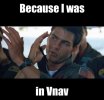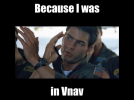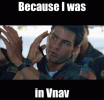One returning pilot lost control of an aircraft during landing and skidded off the runway into a ditch. Another just returning from furlough forgot to activate a critical anti-icing system designed to prevent hazards in cold weather. Several others flew at the wrong altitudes, which they attributed to distractions and lapses in communication.Fuck, I say Fuck, the New York Times paywall! Do you understand me boy?
View attachment 30717
In all of these incidents, which were recorded on NASA’s Aviation Safety Reporting System, a database of commercial aviation mistakes that are anonymously reported by pilots and other airline crew, the pilots involved blamed their mistakes on the same thing: a lack of practice flying during the pandemic.
“It’s not quite like riding a bike,” said Joe Townshend, a former pilot for Titan Airways, a British charter airline, who was laid off when the pandemic hit in March last year.
“You can probably go 10 years without flying a plane and still get it off the ground, but what fades is the operational side of things,” he said. “There is a multitude of information being thrown at you in a real working environment, and the only way to stay sharp and constant is to keep doing it.”
In 2020, global air passenger traffic saw the largest year-on-year decline in aviation history, falling by 65.9 percent compared to 2019, according to the International Air Transport Association. Flights were grounded, schedules reduced and thousands of pilots were either laid off or put on furlough for extended periods of up to 12 months.
Now, as vaccination programs pick up speed across some parts of the world and travel starts to rebound, airlines are beginning to reactivate their fleets and are summoning pilots back as they prepare to boost their schedules for the summer. But returning pilots can’t just pick up where they left off. They must undergo rigorous training programs that involve classes, exams and simulator sessions, which are determined by proficiency levels and the length of time since they have flown.
The process of retraining a large volume of pilots, who have been idle for different periods of time over the past year is complex and challenging. There is no “one size fits all” training model aviation experts say. Typically, pilots receive variations of training based on how long they have been idle. In simulator sessions they will be required to perform different types of landings and takeoffs, including those in adverse weather conditions, and practice for emergency events. Airlines are also adding additional layers to their traditional training programs and requiring some pilots to go back to ground school to help them get back into the aviation mind-set.
“There’s certainly an aspect of rustiness that comes with not flying regularly,” said Hassan Shahidi, the president of the Flight Safety Foundation, an independent organization specializing in aviation safety. “As travel recovers and demand increases, we must make sure that our pilots feel fully comfortable and confident when they get back into the cockpit.”
The same considerations apply to pilots who have continued to fly throughout the pandemic on reduced schedules, Mr. Shahidi added.
“Before the pandemic these pilots were practicing the same procedures day in and day out flying over and over again. When you’re not flying as often your cognitive motor skills are degraded,” he said.
At Virgin Atlantic, the airline founded by the British billionaire Richard Branson, 400 pilots were laid off last year, but as international travel resumes the airline anticipates gradually bringing them back, starting with 50 currently waiting in a “holding pool.”
The returning pilots are sent a digital study pack to help them get back up to speed with technical and operational procedures and are required to pass exams based on that syllabus before starting the training program.
“We have added a lot of enhancements to our usual recurrent training and are covering a lot more ground to make sure we get them back up to where their knowledge sat before and to a level that we are happy with,” said Ken Gillespie, the head of training and standards at Virgin Atlantic.
The exams are extensive and include tests on navigation, winter operations, security, loss of control prevention and recovery, dangerous goods, human factors and unfavorable conditions like volcanic ash scenarios.
“We’ve also added more checks to our training, and no one will get through the final line check until we are happy that they are safe to operate and are fully up to speed again with the aircraft,” Mr. Gillespie said.
One area where some of the pilots have struggled is keeping up to speed with communications, particularly with air traffic control in busy environments.
“On a real aircraft you may have 30 to 40 planes on the same frequency with one controller, so you have to keep your ears really tuned for your call sign and instructions to come out,” Mr. Gillespie explained.
A pilot who anonymously reported an “altitude deviation” — meaning they flew at the wrong height — on NASA’s Aviation Safety Reporting System last year, said they’d misheard instructions for the initial climb after takeoff and blamed the error on being “rusty.”
“Due to Covid-19 slowdown I had not flown in four weeks and my last flight was five weeks before that,” they wrote. “Clearly flight discipline suffered from lack of recent experience and teamwork.”
Some pilots said they also faced challenges because of changes to conditions and their environment caused by the pandemic.
Asad ul Ghafoor Gaad, a captain for the private Pakistani airline, Airblue, said he felt stressed and apprehensive when he went back to work after three and a half months off because the virus was raging, and he had to worry about new health and safety protocols and the risks of contracting the virus in addition to all the procedures required to fly a plane.
“It was difficult to sit in the cockpit on the first day back and feel at home,” Mr. Gaad recalled.
On his first flight — on an almost empty Airbus 320 — as the plane started to accelerate for takeoff, Mr. Gaad was surprised by how quickly it picked up speed. He had been used to flying the same aircraft full of passengers and had not covered how the weight differential might affect a flight.
“The speed surprised me for one or two seconds, and my heart raced,” Mr. Gaad said. “The buildup of speed, the buildup of altitude, the speed that you need to control during landing and other phases, it’s entirely different from what you’re used to, but then after oneor two flights you get used to it.”
Another new reality for pilots flying during the pandemic: preparing to operate planes that have been parked for extended periods of time. The European Union Aviation Safety Agency, or EASA, responsible for civil aviation safety in the European Union, has issued guidelines for identifying hazards like worn out aircraft parking brakes or wildlife nesting in the aircraft engine.
“Airlines must factor in that pilots may need longer than normal to perform the necessary preflight checks on an aircraft returning to service,” said Patrick Ky, the executive director of the agency. “A holistic approach is key.”
Despite the challenges, many pilots feel relieved to be back at work.
“At the beginning there was a lot of worry about the risks of Covid, but now that vaccinations are underway everyone who has been recalled is so happy,” said Sourav Basu Roy Choudhury, a pilot for an American airline, which he did not want to identify because he was not permitted to speak to the news media.
“We love the air, the view, the aircrafts and it’s so much more about those feelings than the money, although in this pandemic you realize that the money is also important.” Mr. Choudhury said. “Everyone is making a big effort with training because they just want to get back.”
Some pilots spent the past year working in warehouses or as delivery drivers just so they could provide for their families; others have not worked at all.
“I felt completely useless and didn’t understand how I could work and train so hard to become a captain, only to find myself at the bottom of the ladder again,” said a former British Airways pilot who asked not to be identified by name because he did not want to jeopardize his chances of being rehired.
“Packing up boxes in a dark warehouse all day I got really depressed and I’ve never felt that way before. I’ve never not wanted to get out of bed in the morning.” he continued. “I miss flying so much, there’s nothing like it and I’m worried that the longer I’m out of practice, the harder it will be to get a job again. Sometimes you wonder, is this it? Am I done for good?”





